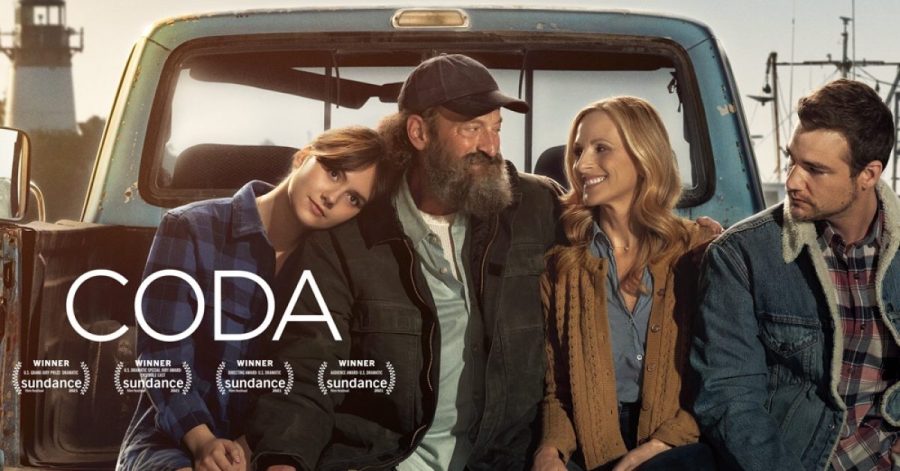The best and worst of 2021 Oscar-nominated movies
Every year millions of people tune in to watch the Oscars live, and even more go back and catch the highlights of what was good last year and what was not. This year was no exception. At the end of last month, 16.6 million people watched live to see what the Academy thought deserved recognition. While the Academy is made up of largely respected professionals, an Oscar win doesn’t mean an amazing film so here are the top picks of what’s worth watching and what’s not.
This year Apple TV’s coming-of-age film “CODA’’ won Best Picture, which garnered an emotional acceptance and crowd reaction. It follows high schooler Ruby (Emilia Jones), the only hearing person in her mostly deaf family, as she discovers her passion for singing. She grapples with balancing that and being around to stick up for her family. While there was some criticism for it making deaf people seem helpless, the film was still a feat for the deaf community with 40% of the dialogue being in American Sign Language (ASL). Director Sian Heder learned ASL for the film, and all three of the deaf characters were played by deaf actors. Not only did “CODA’’ win Best Picture, but it won Best Adapted Screenplay (from the 2014 French film La Famille Belier) and Troy Kotsur won Best Supporting Actor- the first deaf man to do so. With the Oscars getting a lot of criticism for their lack of diversity throughout the years, this win helped remedy that. It was a heartwarming feel-good film and, regardless of the quality, it was a decent choice for the award.
Of the nine other Best Picture nominees there were a solid mix of must-see films and ones that could go without watching. Most notably of the must-sees, “Drive My Car’’ was the first Japanese film nominated for Best Picture and is nothing short of a masterpiece. Primarily based on a short story of the same name by Haruki Murkami, it is a Japanese drama about a theatre director Yusuke Kafuku (Hidetoshi Nishijima) who takes a residency directing Uncle Vanya in Hiroshima while recovering from his wife’s death. While there he meets Koji (Masaki Okada), a man his wife was cheating on him with, and Watari (Toko Miura), his chauffeur. The three hour run time is likely to scare some viewers off, but with the film’s steady pacing and compelling exploration of grief and human connection, it’s an excellent watch.
Netflix’s western/drama “The Power of the Dog” was another strong contender. It is about ranchers Phil (Benedict Cumberbatch) and George Burbank (Jesse Plemons) who meet inn owner Rose (Kirsten Dunst) and her teenage son. Not only was the film an overall achievement in its excellence, but the score and visuals were particularly outstanding.
The Best Picture category was not without its fair share of misses. While “Dune,” “King Richard” and “West Side Story’’ were mediocre, the Academy could have gone without nominating a few others. Whereas “Licorice Pizza” and “Belfast” were snooze fests, perhaps the worst of the bunch was Netflix’s “Don’t Look Up,” a political satire about two Michigan State astronomers (Leonardo DiCaprio and Jennifer Lawrence) who discover a giant asteroid heading towards Earth and must convince the world of its danger. The whole film fell flat and was a big A-list packed hot mess that came out just before Christmas with enough time for the Academy to nominate it and absolve themselves of their social responsibility.
2021 was not short of impressive films the Academy could have chosen instead of some of the nominations, but just because they didn’t receive any recognition doesn’t mean they should go unwatched. Of the most skillful of these was James Wan’s “Malignant.”
“Malignant” (from the same director as “The Conjuring” and “Saw”) is a horror film about a woman named Madison (Annabelle Wallis) who sees visions of people being murdered by a strange figure and realizes that not only are the visions real, but the violent murders are connected to her childhood. The film drew inspiration from the Italian Giallo genre, classic 1980’s and 1990’s slashers and incorporated elements of body horror, all while creating a unique and absolutely off the walls paragon of horror.
Not completely void of recognition, categories other than Best Picture had some excellent films that shouldn’t be ignored. Nominated in three categories (that it unfortunately lost all of), “Flee” was easily the biggest snub of the night. Unlike the other films in most of its categories (Best International Feature, Best Animated Feature, Best Documentary Feature), “Flee” is a documentary. It’s the story of a gay man named Amin who fled Afghanistan for Denmark as a teenager as the Taliban rose to power, and has kept it a secret ever since. Not only was it an emotional and compelling story, but it proved animation to be an exciting documentary medium.
The Best Actress category had a number of excellent films that were overlooked. Maggie Gyllenhaal’s directorial debut “The Lost Daughter” starred Olivia Colman as Leda, a professor reflecting on her motherhood on a seaside vacation in Greece. It was incredibly raw and unflinching, and an impressive film, directorial debut or not.
Like every year, the Oscars could not please everyone. Of course there were some exciting moments like “CODA’s” groundbreaking Best Picture win for the disabled community.
However, every hidden gem gone overlooked or blockbuster snub just further proves that an awards show does not represent the best or the worst of the year.

